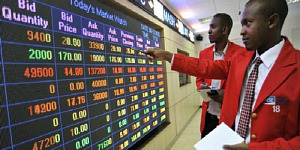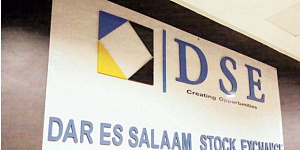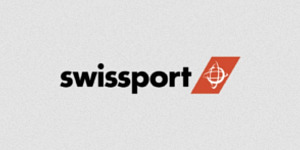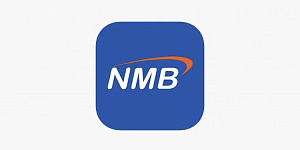Dar es Salaam Stock Exchange (DSE) Plc is concerned of the possible adverse effects that companies cross-listed on the bourse are posing on shareholder wealth and the subsequent underperformance of the benchmark stock index.
It comes as analysts termed the decline in share price for cross-listed stocks as ‘temporary’ and usually ‘company specific.’
DSE’s total market capitalisation (total market value of listed shares) declined by seven percent to Tsh 14.61 trillion ($5.35 billion) in 2023 from Tsh 15.68 trillion ($5.75 billion) in 2022 while the Tanzania’s All Share Index (DSEI) declined by seven (7) percent to 1,750.63 points from 1,881.99 points in the same period.
Currently the DSE has 28 listed companies of which 22 are local companies and 6 are cross-listed companies—KCB, East African Breweries Ltd (EABL), Kenya Airways, Jubilee Holdings Ltd (JHL), Nation Media Group (NMG) and Uchumi Supermarkets, which are also on the Nairobi Securities Exchange (NSE).
Sarah Mrema, the DSE Plc’ s Head of trading and market operations attributed the loss of shareholder value to the bear run facing cross-listed firms.
“This index (DSEI) experienced a decline due to price changes for cross-listed companies such as KCB, EABL and JHL,” says Ms Mrema through the company’s latest annual report (2023).
According to the report the decrease in the total market capitalisation was due to ‘decrease in prices of cross-listed companies.’
On the other hand, the domestic Market capitalisation increased by three percent to Tsh11,401 billion ($4.18 billion) from Tsh 10,280 billion ($3.76 billion) while the Share Index (TSI) that excludes cross-listed firms rose 11 percent to 4,304.4 points from 3881.89 points in the same period.
DSE attributed the increase in share prices and valuations for some domestic listed companies as the major reason for a growth in domestic market capitalisation and the Share Index (TSI).
Paul Mwai, a director on the NSE board says the decline in price of cross-listed stocks is not generally a result of the macroeconomic fundamentals, but something to do with the individual companies.
“I don’t think it is likely the macroeconomic fundamentals that are the cause. I think this is certainly company specific and really depends on the individual stock that is cross listed, but I think it is temporary you don’t want to worry about that,” says Mr Mwai in an interview.
During the week ended September 6 market turnover on the NSE declined by 43.7 percent to Ksh1.29 billion ($9.91 million) from Ksh2.3 billion ($17.68 million) in the previous week, with trading activity by foreign investors decreasing by 56.2 percent to Ksh660 million ($5.07 million) in the same period.
Foreign investors remained bearish across key blue chips– printing net outflows amounting to Ksh 292.54 million ($2.24 million), according to analysts at Genghis Capital.
“A positive trajectory is envisioned on the Kenyan stock market and the shilling following the clearest signal by the US Federal Reserve on interest rate cuts as of September.
This would promote a reversal in net sales (capital outflows) that have weighed on the market since 2020,” says Genghis through a weekly market report dated September 9, 2024.
The NSE recorded capital outflows amounting to Ksh 84.58billion ($650.37 million) between 2020 and 2023 and in the first seven months of 2024, foreign investors made net sales of Ksh490 million ($3.76 million).
Read: NSE beats African peers in half year returns
Cross-listed firms are facing a hit in regional markets as a result of declining trade volumes and poor liquidity of shares largely due to limited supply of cross-listed shares, exchange rate risk and manual settlement operations.
Other factors hindering the trading in cross-listed shares in the region include the investor exposure risks in the region, trading in multiple currencies, and absence of harmonised regulatory framework and the varying levels of development of regional stock markets.
“We must accept that trading in cross-listed shares in the region has largely remained manual, “Wycliffe Shamiah, Chief Executive of Kenya’s Capital Markets Authority (CMA) said in an earlier interview.
Even though companies make strategic decisions to list their shares in other jurisdictions away from their primary markets, investors are finding it difficult to trade in cross-listed shares since they are largely held by shareholders domiciled in primary markets.
“There are practical challenges that come with the expectations that cross-listed securities are going to experience have heavy trading,” says Mr Shamiah.
Listed companies usually cross-lists shares with an aim of reducing the cost of capital raising, diversify investor base, increase the share price, improve liquidity of the stock, improve visibility and shore up the market share for its products and services.
About 10 companies have cross-listed their shares in the region.
These are KCB Group, Nation Media Group (NMG), East African Breweries Limited (EABL), Kenya Airways, Equity Group, Centum Investments, Jubilee Holdings, Umeme Ltd, collapsed Uchumi Supermarkets and the Bank of Kigali (BoK).
For instance, NMG, KCB, EABL, Kenya Airways and Jubilee Holdings which are primarily listed on the Nairobi Securities Exchange (NSE) are cross-listed at the Ugandan Securities Exchange (USE) and Dar es Salaam Stock Exchange (DSE).
Umeme and Bank of Kigali whose primary listings are on Kampala and Kigali bourses respectively are cross-listed at the NSE.
Equity Bank, NMG, KCB and Uchumi are also cross-listed at the Rwanda Stock Exchange (RSE) while Centum Investments is cross-listed at the USE.
Equity bank is also cross-listed at the USE.
While several Kenyan companies have cross-listed their stocks on the Ugandan, Tanzanian and Rwandan markets, the NSE has not benefited from reciprocal listings.
In 2018, Rwanda’s Bank of Kigali became the second firm in the region to cross-list its shares on the NSE, after Uganda’s utility firm Umeme, which cross-listed in 2012.
DSE issued shares to the public in June 2016 and thereafter self-listed its shares on its own Exchange on July 12, 2016.























































